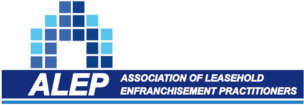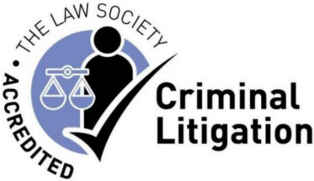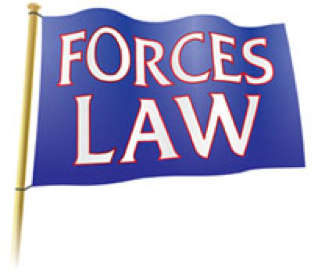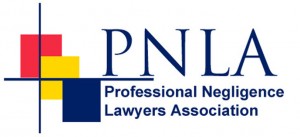Experienced Divorce and Family Law Solicitors
Modern life is full of stressful situations. Running a business and getting divorced are two of the most stressful things a person can do. When the two combine, tempers can flare and feelings can run high, and when the business is family owned there’s even more at stake.
Family businesses tend to rely on unity, cooperation and strong family ties. When that family starts to break up, it can have a devastating impact not only on the family members but on the family business too. This can prove particularly tough when the business is husband and wife run, especially if the married couple are joint partners in the company.
Here at Bonallack & Bishop, that first phone call, and your first 30 minute appointment, are both FREE. Phone, face-to-face or Zoom video – it’s your choice . Call FREEPHONE 0800 1404544 or Email Us Now.
The importance of the UK’s family owned firms
You may be surprised to hear that there actually 4.8 million family businesses in the UK. And the not all small – over 18,000 of them are classified as “medium” or “large” businesses.
And family owned firms employ a remarkable 13.4 million people in the UK.
And that’s why the problems with family run firms are so common in divorce.
Can both parties continue in the family owned business post-divorce?
Yes, it is certainly perfectly possible.
It is not that unusual for divorced couples to try to carry on and run the business professionally together. However, this is rarely easy and can be extremely difficult, particularly if there is animosity on the part of at least one partner.
There’s nothing legally stopping you continuing to work side-by-side – but it’s practical and emotional issues that can cause huge problems.
In the instance of family and wife businesses, one common solution is to transfer of ownership to one partner, who will continue to run it, with a lump sum being paid to the other partner in order to ‘buy them out’.
A clean break such as this can be hugely beneficial and enable both parties to move on effectively.
The Business – as an asset of the family
The first thing to understand is that in any divorce (or civil partnership dissolution) when looking at financial issues, each and every asset of the family (i.e. the two spouses or partners) will be considered as a family asset – which is potentially available for distribution between them both.
So that includes the family owned firm.
Click here to read more about divorce and financial settlement.
What happens when both of us are actively involved in the business?
In the case of family businesses where both partners were either shareholders in the family company or otherwise working in or for the business and, following the divorce, one partner effectively ceases to be a member of the family, it can be difficult for things to continue as they were.
It’s often possible, but it’s rare.
If the divorce was particularly acrimonious or there were accusations of infidelity or impropriety on the part of one partner, it can be difficult for the rest of the family to accept him or her as a valued part of the family business.
If that person refuses to relinquish his or her shares or involvement with the company, it could result in a stalemate which can impact negatively on everyone involved.
In that case, and depending of course on your own circumstances, there are several options which our experienced family lawyers can discuss with you. They include:
· buying one-party out by compensating the other party for the loss of share in the business with other family assets
· borrowing to buy them out – or issuing new share capital to do so
· selling up to a third party
· selling the business to your spouse or partner
It’s worth noting that the court does have power to order transfer of one party’s shareholding to another.
The most common solution is for business to be left either with the major shareholder or the most capable partner and for the other should be compensated with a share of assets or regular maintenance payments. This tends to be a situation which suits most divorces, but it is fraught with complications including the fair valuation of the business and dividing assets which may not be evenly owned to start with.
Divorce and the Family Owned Business – the problems that can arise
A divorce occurring against the backdrop of a family firm can have any number of problems. Some of the most common issues arising from divorce include:
• Disputes over the future and potential sale of the business
• Arguments over the contribution made to the business by certain partners
• Disagreements over the restructuring of the business following the divorce settlement
• Divisions over the valuation of the business
• Owners panicking at the first sign of a divorce and making changes to the business
But there are plenty of potential solutions to the various issues raised by family businesses. and in addition to a highly experienced divorce and family law team, we have an extremely specialist solicitor who focuses on inheritance tax and family wealth planning – creating a lasting family legacy through bespoke succession planning.
Click here to find more about how our succession lawyers can help you.
The importance of trying family mediation
Our divorce and family law team are huge fans of family mediation – especially in connection with businesses owned by families.
Whenever possible we strongly recommend a negotiated settlement. It will certainly be quicker and cheaper and hugely less emotionally draining than taking the matter to court.
Click here to read more about family mediation and how it might work for you
However, sadly mediation doesn’t work for everyone. And if we can’t manage a negotiated settlement, an application to court might become the only option.
Divorce and the Family Owned Business – the Court’s Approach
Judges tend to be reluctant to get too involved in breaking up a family owned business. They strongly prefer to leave that kind of issue to the owners to sort out.
Often, any judgement will allow the business to be left either with the major shareholder or the most capable partner – with the other compensated with a share of assets or regular maintenance payments. This tends to be a situation which suits many divorces, but it is fraught with complications including the fair valuation of the business and dividing assets which may not be evenly owned to start with.
But care must be taken that the remaining business remains financially viable – courts are usually very reluctant to approve any settlement which could ruin the family business.
Does the court have the power to order sale ?
Yes, that power does exist, however – it is extremely unusual for the courts to order a business be sold. As with any legal situation, it is important to always bear in mind the possible outcomes.
Beware of causing damage to the business during divorce
If a court sees that you made sudden changes to the business when the prospect of divorce was raised, especially if those changes benefited you at the expense of your partner or spouse, the judge may take a very dim view.
The importance of getting the right valuation of your family business on divorce
If part of the eventual financial settlement involves transfer of all or part of the business to one party, then it’s absolutely critical that the business is valued properly.
We will work with you to identify the right valuer – one who both understands family business and, more importantly, understand your particular business sector.
The importance of taking early specialist legal advice
Getting the right legal advice from an experienced family law solicitor with experience of family businesses is critical. Whilst it may indeed put your mind at rest, you will also be aware of your options.
Click here to read more about how our Divorce Solicitors can help you
How our solicitors can help
Our family law team can guide you through the process of protecting your business interests, ensuring a fair settlement and preparing the family and business employees for the potential outcomes, ensuring that the future of the business is not put at risk by the impending divorce.
If necessary, they can involve specialists from our other teams – in particular our property and business law teams.
During difficult times, it’s good to know that you can rely on the experts.
Click here to read more about divorce and business assets













